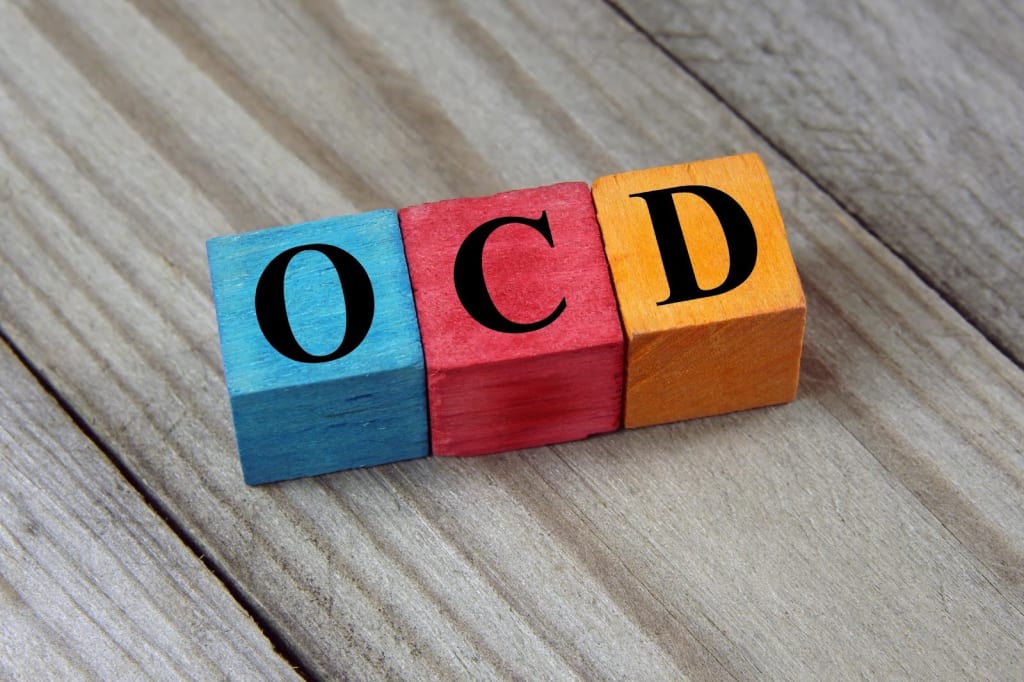Exploring The Link Between OCD and Perfectionism
While perfectionism can lead to amazing accomplishments, it can also become unhealthy.

By Steven Booth, Founder, Elevation Behavioral Health
We all know a perfectionist or two—maybe even ourselves. Perfectionists tend to be high achievers, goal oriented and driven personalities. They are highly self-critical and accept nothing less than perfection from themselves.
While perfectionism can lead to some amazing accomplishments, it can also become unhealthy. Maladaptive perfectionism is a common trait among those with obsessive-compulsive disorder (OCD), especially those that revolve around checking obsessions.
With OCD comes a compulsive need to perform rituals in exactly the right way in a fruitless attempt at achieving a perfect result. The goal is always the same, to relieve anxiety fueled by fear and loss of control.
Let’s explore perfectionism, OCD, and OCD perfectionism to gain a better understanding of the various distinctions.
What is Perfectionism?
We might view people who are perfectionists as both admirable and infuriating. A perfectionist is someone who insists that everything be done just so, and those lofty expectations often accompany them into the workplace and relationships. Some traits of a perfectionist include:
- Extremely goal oriented and driven
- Imposes unrealistic expectations on themselves and others
- Highly self-critical; dwells on mistakes made
- Express frustration, disappointment, or anger with others do not live up to their expectations
- Self-esteem is connected with appearing perfect in every way, such as appearance, intellect, and accomplishments
While being goal-oriented and driven toward seeking success are examples of adaptive perfectionism, the other traits listed here are all considered to be maladaptive. Maladaptive perfectionism is they type of perfectionism related to OCD compulsions.
What is OCD?
Obsessive-compulsive disorder (OCD) is a complex mental health disorder that is associated with anxiety disorders. OCD affects approximately 1.2% of the US adult population, with women three times as likely to suffer from the disorder.
OCD involves two disordered activities: obsessive thoughts and the resulting compulsive actions. Obsessive thoughts, which are rooted in doubt, fear, or guilt, can ensnare the individual into a pattern of repetitive compulsive behaviors. The compulsive behaviors are the response to obsessive doubts and fears, and act to mitigate the subsequent anxiety.
Examples of obsessive thoughts:
- Irrational fear. The individual might fear germs or contamination or fear they may set the house on fire, for example.
- Disturbing thoughts. The individual might have repetitive and disturbing sexual, religious, or violent thoughts about a loved one.
- Rigidity. The individual might have an extreme need for order and symmetry that leads to intense stress if items are not arranged just so.
- Fear of harming. The individual might have thoughts of self-harm or harming others.
Examples of compulsive behaviors:
- Washing hands over and over until raw
- Checking repeatedly that the lights are turned off, that the stove is off, that the doors are locked, etc.
- Counting in patterns
- Mentally repeating a phrase, word, or prayer
- Arranging items to be spaced at exact distances apart, or placed in certain patterns, or turned in a particular direction
Although it is not yet known exactly what causes OCD, there has been some progress made in understanding the disorder through neuroimaging studies. Brain imaging revealed that certain areas of the brain are functioning differently in those who have OCD. As such, it is understood that OCD is primarily a neurobiological disorder that may be influenced by genetic and environmental factors.
The Difference Between Perfectionism and OCD Perfectionism
While obviously not all perfectionists have OCD, many with OCD tend to have many maladaptive perfectionist traits. Perfectionism is a personality type, often what we refer to as a Type A personality. Although perfectionists do not have a mental health disorder, when their perfectionist tendencies become unhealthy, they can experience much strife due to these traits.
OCD is not the same as perfectionism. Instead, the repetitive actions someone with OCD engages in are more anxiety-driven. The individual may repeat the behavior over and over, which in its own way is a type of maladaptive perfectionism, however the catalyst is more about reducing stress than achieving perfection.
In other words, someone that rewrites their novel five times is driven by a quest to write the perfect manuscript. Someone that suffers from OCD might return to turn the stove off over and over again to manage the fear of burning the house down. Both repetitive, both seeking an excellent result, but both having totally different goals.
Traits of OCD Perfectionism
OCD compulsions often look a lot like perfectionism. The individual engages in a compulsive action, hoping to perform it just right, to do it perfectly. He or she may wash their hands using a specific method, or lock the door a certain way, or perfectly spaces out the items on a tabletop using exact measurements.
Just as with perfectionist personalities, those with OCD will work very hard to achieve the exact outcome they strive for. This is particularly common when the OCD involves checking obsession-compulsions. The desire to control the outcome, through these exacting efforts, can be both emotionally and physically draining.
Coping with OCD Perfectionism
For those who have OCD and struggle with maladaptive perfectionist traits, there are some actions you can take to help reduce their negative impact. Consider these tips:
Practice letting go of control. There are strategies that can help you better tolerate the loss of control over the fear that is driving the compulsive perfectionism. You slowly learn how to accept a less than perfect outcome by building up your distress tolerance over time. Incrementally, you learn to give up the need to do the compulsion such right.
Practice mindfulness. OCD is a fear-based anxiety disorder. Giving too much weight to fearful thoughts can exacerbate the compulsive behavior response. Mindfulness teaches us to let go of the intrusive thoughts that are driving the fear. By redirecting attention toward the present moment you can separate yourself from these thought distractions.
Practice cognitive restructuring. CBT is a type of therapy that is very useful for people with OCD. A key principle of CBT is called cognitive restructuring, where you learn to replace distorted thoughts by reframing them in a positive way. This causes you to challenge your thinking and rethink the obsession that was a product of cognitive distortion.
Treatment by a mental health professional who is trained in OCD specifically will involve the use of psychotherapies, such as CBT and exposure and response prevention therapy. These interventions can help you better manage unhealthy perfectionist behaviors and enjoy a better quality of life.
About the Author
Steven Booth is the CEO and Founder of Elevation Behavioral Health in Agoura Hills, CA. Steven earned his B.A. from the University of California, Santa Barbara in Economics. Before helping to co-found Elevation Behavioral Health, Steven worked in both private and public accounting. Like many others, Steven has seen firsthand the destruction that addiction can inflict on family and friends. He has also witnessed the extraordinary changes that can be made when addicts receive the necessary treatment. His passion is providing outstanding mental health care through his facility, and improving the quality of life of clients.
About the Creator
Elevation Behavioral Health
Elevation Behavioral Health is a Private Inpatient Mental Health Facility in Beautiful Agoura Hills, CA., utilizing behavioral health, Holistic & evidenced-based therapies, we provide Inpatient Mental Health Treatment & facilities.






Comments
There are no comments for this story
Be the first to respond and start the conversation.